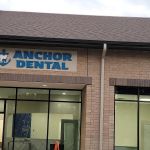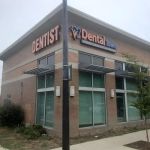Why Oral Hygiene Is Important for Older Adults
As we age, our bodies undergo numerous changes, and one area that often gets overlooked is oral health. For older adults, maintaining good oral hygiene is crucial for both physical and emotional well-being. While many people focus on their overall health, they may not realize that poor oral hygiene can lead to a variety of serious health issues that impact their quality of life. From gum disease to difficulty eating, the consequences of neglecting oral care can be significant. In this article, we will explore why oral hygiene is especially important for older adults and how simple practices can help improve their oral health.
The Connection Between Oral Health and Overall Health
Oral health is closely linked to overall health, especially as we age. Studies have shown that poor oral hygiene can lead to a range of chronic diseases, including heart disease, diabetes, and respiratory infections. In older adults, these risks are heightened due to the natural changes in the body that come with aging. For example, the immune system weakens over time, making it harder to fight infections, including those that originate in the mouth.
Gum disease, also known as periodontitis, is a common issue for older adults. The bacteria that cause gum disease can enter the bloodstream, leading to inflammation in other parts of the body. This can increase the risk of developing heart disease, stroke, and diabetes, making it critical for seniors to maintain their oral hygiene routines.
Challenges Faced by Older Adults in Maintaining Oral Hygiene
As we get older, various factors can make it more challenging to maintain good oral hygiene. For older adults, some common challenges include:
- Decreased mobility: Arthritis or limited hand dexterity can make it difficult to properly brush and floss. Using electric toothbrushes or adaptive tools can help overcome these challenges.
- Dry mouth: Medications and certain health conditions can cause a reduction in saliva, which is essential for neutralizing acids and washing away food particles and bacteria. Dry mouth can lead to tooth decay and gum disease, so it's important to stay hydrated and use saliva substitutes if necessary.
- Difficulty chewing: Older adults may experience tooth loss or ill-fitting dentures, making it harder to chew food properly. This can lead to further oral health issues, such as cavities or gum irritation.
- Memory loss: Cognitive decline can affect the ability to remember to brush and floss regularly. Setting reminders or using a caregiver to assist with oral hygiene can be beneficial in these cases.
Tips for Maintaining Oral Health as an Older Adult
Maintaining good oral hygiene doesn't have to be difficult. With a few simple steps, older adults can greatly improve their oral health. Here are some tips for maintaining healthy teeth and gums:
- Brush regularly: Brush your teeth at least twice a day with fluoride toothpaste. An electric toothbrush can make brushing easier and more effective.
- Floss daily: Flossing removes food particles and plaque from between the teeth, areas that a toothbrush can't reach. If manual flossing is difficult, consider using floss picks or a water flosser.
- Visit your dentist regularly: Regular dental check-ups are essential for preventing and treating any oral health issues. Your dentist can spot potential problems early, which is especially important for older adults who may have underlying health conditions.
- Stay hydrated: Drinking plenty of water can help combat dry mouth. Chewing sugar-free gum or using saliva substitutes can also help stimulate saliva production.
- Quit smoking: Smoking is a major risk factor for gum disease and tooth loss. Quitting smoking can significantly improve oral health and reduce the risk of serious diseases.
The Emotional and Social Impact of Poor Oral Health in Older Adults
Poor oral hygiene doesn't only affect physical health—it can also have emotional and social consequences. For older adults, feeling self-conscious about bad breath or missing teeth can lead to embarrassment and isolation. Maintaining a bright smile can boost confidence and improve interactions with others, which is essential for overall well-being.
In addition, the ability to chew and enjoy food is an important part of life. Older adults who experience tooth loss or gum disease may find it difficult to eat the foods they enjoy, leading to nutritional deficiencies. This can also impact their general health, including their ability to maintain a healthy weight or manage chronic conditions.
Conclusion: Simple Steps to Better Oral Health
Oral hygiene is just as important for older adults as it is for younger individuals, and it's essential to take proactive steps to maintain oral health. Regular brushing, flossing, and professional dental care can prevent serious health issues and improve the quality of life. By understanding the importance of oral hygiene and overcoming the challenges that come with aging, older adults can enjoy better oral health and overall well-being.







 McDonough Dental Studio4.0 (685 review)
McDonough Dental Studio4.0 (685 review) Growing Smiles Pediatric Dentistry - Garner Station5.0 (15 review)
Growing Smiles Pediatric Dentistry - Garner Station5.0 (15 review) Custom Endodontics4.0 (67 review)
Custom Endodontics4.0 (67 review) Anchor Dental0.0 (0 review)
Anchor Dental0.0 (0 review) Anoka Ramsey Dental5.0 (185 review)
Anoka Ramsey Dental5.0 (185 review) Dental Town-Pulaski0.0 (0 review)
Dental Town-Pulaski0.0 (0 review) The Importance of Oral Health Education During Pregnancy for a Healthy Pregnancy
The Importance of Oral Health Education During Pregnancy for a Healthy Pregnancy Best Tips for Brushing Your Teeth Properly for Healthy Gums: Essential Techniques for Oral Health
Best Tips for Brushing Your Teeth Properly for Healthy Gums: Essential Techniques for Oral Health Why Skipping Dental Checkups Can Lead to Bigger Oral Health Problems
Why Skipping Dental Checkups Can Lead to Bigger Oral Health Problems Advantages of Porcelain Dental Restorations
Advantages of Porcelain Dental Restorations How Can Diabetes Cause Tooth and Gum Problems? Preventing and Managing Oral Health Issues
How Can Diabetes Cause Tooth and Gum Problems? Preventing and Managing Oral Health Issues Healthy Habits for Promoting Good Oral Health and Hygiene: Tips for a Healthy Smile
Healthy Habits for Promoting Good Oral Health and Hygiene: Tips for a Healthy Smile